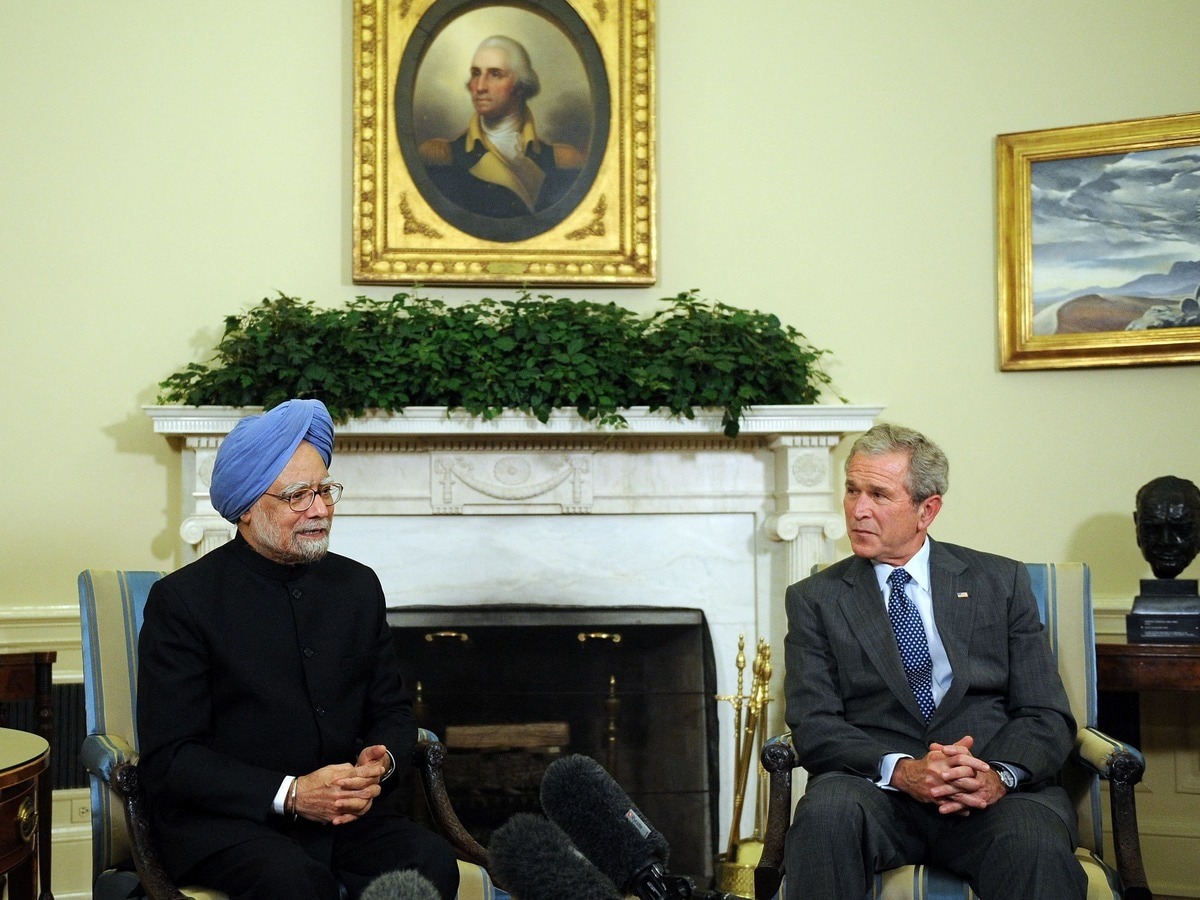The death of former Prime Minister of India Dr. Manmohan Singh at the age of 92 is the end of an era. Under his leadership, India achieved many historic achievements, the most notable of which is the India-US civil nuclear agreement. The agreement gave India entry into the global nuclear trade after 34 years of isolation and gave a new direction to bilateral relations.
Nuclear deal: New chapter in India-US relations
On 25 September 2008, at the White House, Dr. Manmohan Singh and US President George W. Bush finalized this historic agreement. Manmohan Singh said on this occasion:
“The people of India love you very much.”
This statement not only reflected his diplomatic warmth but was also a symbol of the growing partnership between India and the US.
Historic moment at the White House
The weather in Washington that day was overcast and rainy, but the atmosphere inside the White House was one of warmth and cooperation.
- In the eight-minute press conference, both the leaders praised each other.
- Dr Singh described Bush’s leadership as “significant and historic in history”.
- Bush called Manmohan Singh a “wise and visionary leader.”
Bush called the agreement a “difficult but important step forward for both countries,” saying,
“Together we have worked hard to take our countries’ relations to new heights.”
end of nuclear apartheid
Dr Singh saw this agreement as the end of “nuclear apartheid”. He said:
“For 34 years India remained isolated from the trade in nuclear materials and reactors. The credit for ending this ban goes to President Bush. The people of India love you because you have worked to bring the two countries closer.”
Political controversy and criticism
Dr. Singh’s statement, “The people of India love you deeply,” But a sharp political controversy broke out in India.
- Left parties and BJP criticized it in harsh words.
- CPI-M general secretary Prakash Karat said,
“The Prime Minister loves Bush, it may be his personal matter, but why are the Indian people being dragged into this?” - BJP spokesperson Ravi Shankar Prasad dismissed the comment as “personal praise”.
The Left parties withdrew support to the UPA-1 government over this issue, leading to a political crisis.
defense of congress
Veerappa Moily, then Congress media cell chairman, defended the Prime Minister’s remarks, saying:
“This was an expression of India’s tolerant and accommodating attitude. India has never followed the culture of hatred. There is nothing wrong in the Prime Minister’s statement.”
Bush and Singh: a strong partnership
On a visit to India in 2009, George W Bush praised Manmohan Singh, saying:
“The Prime Minister is a wise leader. He has taken India to new heights on the economic and diplomatic front.”
Bush also praised Dr. Singh’s contribution to reforms in the Indian economy.
Importance of nuclear deal
This agreement gave India entry into the global nuclear trade.
- India got special exemption in Nuclear Suppliers Group (NSG).
- India opened up new possibilities to meet its energy needs.
- The agreement helped in strengthening India’s global position.
Manmohan Singh: A visionary leader
This step of Dr. Singh was not only a diplomatic achievement, but it was also a proof of the foresight of his leadership.
- He gave a new direction to global relations.
- Economic and diplomatic reforms brought India to a stronger position.
 look news india
look news india
